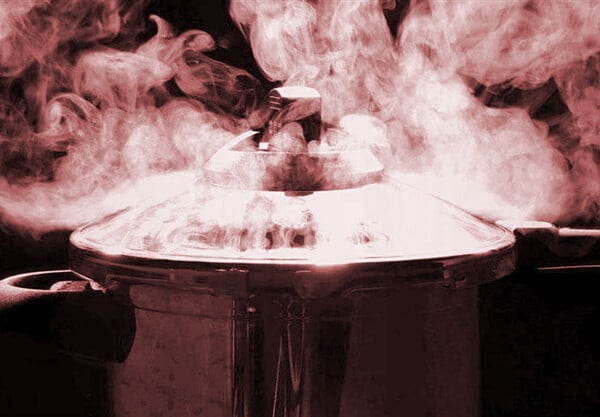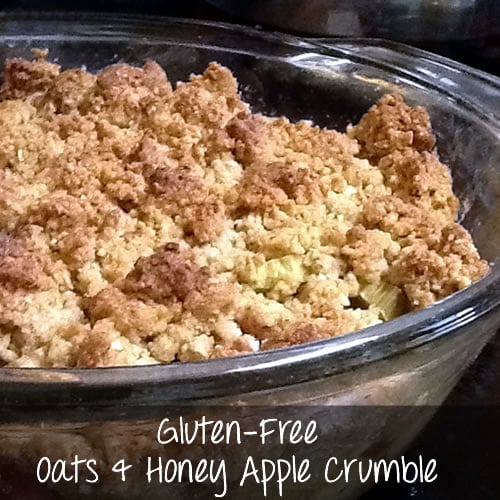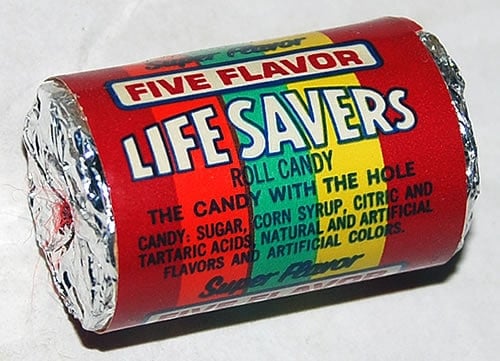“What Kind of Milk Should I Drink?”
Jan 30, 2012, Updated Feb 05, 2016

I’ve gotten this question a lot lately. People can get pretty passionate about their milk, so for the sake of this particular discussion, let’s assume you’re not asking whether or not you should drink milk at all, just that you are a generally healthy adult who likes to drink milk, and you’re wondering about which particular type of cow’s milk is the best way to go.
In the past, I’ve simply recommended fat-free or low-fat milk. I’ve done so because that’s what the government recommendations say to do. In recent months, however, I’ve been learning a bit more about milk (and have also become wary about the influence industry has on the government’s dietary recommendations).
Although I don’t have first-hand experience (I’m a little lactose-intolerant), I purport that drinking raw, whole milk from healthy, well-treated cows that eat grass in the pasture is probably the best way to go. That’s because the nutritional profile of milk from cows that eat grass — rather than corn — is better for you. It’s also better for the environment… And for the cows. (Here’s a good discussion of grass-fed vs. grain-fed cows).
[Update: See Kate’s important comment about the dangers of raw milk.]
Unfortunately, tracking down grass-fed, raw milk can be difficult, if not impossible (oh yeah, and it may be illegal). Even if you can find a good source, it’s probably quite expensive compared to just going to the supermarket. So, you ask, what about the typical pasteurized-homogenized store-bought stuff?
First, I recommend buying certified organic dairy products whenever possible (though if I had to choose between pastured-and-grass-fed-but-not-certified-organic, and corn-fed-and-Organic, I’d go with the first option).
After that, it’s worthwhile to know what happens to most milk before it gets to you. To start, it’s combined with milk from hundreds or thousands of other cows. Then it’s spun in a centrifuge to remove the fat. Next, the fat is added back into the milk to the desired percentage, and the fat is homogenized [good description, though from an obviously biased source] to keep it from floating back up to the top. Then it’s pasteurized and finally packaged up and sent on its way to the store.
So this type of “whole milk” is not really whole anymore. It’s been split apart, put back together, and heavily processed.
If it’s going to be pasteurized-homogenized milk, especially if it’s from cows that are eating corn and not grass, we may be better off avoiding the fats altogether. The nutritional profile of the fats in the milk is going to be different (worse) from those cows.
Additionally, by drinking non-fat milk, it reduces the overall calories — and the fewer calories we drink (rather than chew) the better. Quite a few studies have shown that liquid calories are not registered by the body as well as solid calories, so if we drink our calories, we tend to consume more overall.
In choosing your milk’s fat content, though, I wouldn’t stress too much about those few added calories. Drinking water instead of milk will make a bigger difference than choosing 1% instead of 2% milk — unless you drink a lot of milk. Also, if there’s more fat in your glass of milk, it may increase your satiety a bit — meaning you’ll feel fuller longer. If that’s the case, the extra fat may be beneficial overall.
On a related note, we’ve switched to using real butter in our house instead of butter-replacements like Smart Balance or Earth Balance. That’s not for everything, mind you — we still use plenty of olive oil, and I’m loving my unrefined coconut oil. But we’re buying butter only made from grass-fed, pastured cows. The fats are better for us, and it tastes better, too.





















Good post, Andrew. On the issue of raw vs. pasteurized – I know it can be a very heated debate and it is not my wish to start one, but I am a raw milk advocate. I drink raw goat’s milk which comes straight from the Alpine doe in my backyard. It is safer and healthier than pasteurized, homogenized milk, (and goat’s milk is healthier and more easily digestible than cow’s milk) as long as it is handled correctly and proper sanitation measures are taken. That is not to say there are no dangers of raw milk, but most of them came about because of industrialization – when farming became all about bigger, faster, better, and cheaper, shortcuts were taken and quality suffered. Raw milk from a pasture-based, small-scale, clean operation is worlds better in every way, IMO. P.S. – Did I miss the post with the October Unprocessed survey… Read more »
I’ve recently discovered that the local Mother’s Markets (not sure if it’s only a So-Cal thing) carries raw whole milk from Claravale farms.. and it’s DELICIOUS!! a little pricey, but well worth it.
Great post. This is what I’d write about if I had gotten to it first. The best way to find whole milk from pastured cows that live the life we expect cows to live is to go to the local farmers markets. But yes, finding raw milk will be nearly impossible.
Pastured milk tastes about 587x better (approximately) than CAFO-borne milk, too 🙂
Thank you also for pointing out that pastured over organic is the way to go. Organic is a great start, but some companies truly do the bare minimum to get that certification, and organic milk is usually milk from cows that have had just as crappy and horrific a life as a conventional cow, except their corn feed happens to be organic. Horizon is the worst, by the way.
Thanks!!!
Great post, Andrew! While I’ve never been a fan of milk, I have liked other dairy products and chose the grass-fed pastured organics before discovering my dairy allergy. I think the more you can find in that direction the better since finding raw organic milk is so difficult (and illegal in some areas). One thing people can do to find those healthier milks is CSAs. The one we belonged to before moving included milk if people chose and the cows were grass-fed and pastured, as were beef, chicken, and eggs we got. Plus, most of the farmers providing the milk use the old glass milk containers. Once you return them, they get sterilized and re-used. Just like the old days. No more milk cartons in the landfills. Well. Not as many. 😀
In my experience, local is the way to go over organic. Many local dairies are not organic certified because it is difficult and expensive.
My homestate of Ohio is lucky to have a non-homogenized, quickly-pasteurized milk from a dairy called Snowville. They do not have plans to pursue organic certification becaue to do so would be costly and require that they purchase feed that is grown several states away. Instead, they pasture cows on grass land and feed with all-natural grain from local farmers.
Snowville milk tastes like milk. I buy it just a few days after it was in the cow. It is easily made into cheese and other dairy products because it has not been over-processed. (National organic brands are ultra-pasteurized and unsuitable for many cheeses.)
I highly recommend that people search out local dairies with sustainable feeding, bottling, and shipping practices.
You really shouldn’t advocate drinking raw milk without at least MENTIONING that the reason it’s illegal is because it has a higher chance and a very real risk of carrying pathogens, and that as a result pregnant women, small children and anyone else who has a compromised immune system should avoid raw milk. There are no proven health benefits to drinking raw milk (other than some thoughts re: allergies), and you get as much benefit from seeking out a producer that pasteurizes their milk but treats it thoughtfully. Straus is a great brand that’s pretty widely available in California – their cows are primarily grass fed and they do pasteurize, but they don’t ultra-pasteurize (most of the organic milk you can find)
I adore Kerrygold butter, BTW.
Excellent points, Kate. I did specify “generally healthy adult” at the outset of the post, but yes, I should have included a mention of the risks of raw milk. I just updated the post with a link to your comment. Thanks!
Your point is sound Kate, as the debate about raw milk continues to rage on. But it is not illegal to sell raw milk, its distribution is controlled for many reasons, health risks and large milk distributors influence…
Yes, raw agricultural products can carry some risk, including melons, spinach, sushi, and more. Yet, raw milk gets singled out when mentioned, because it has a risk (just like every other food) of carrying pathogens. It seems that we would be better off knowing our farmers and where our food comes from, rather than demonize something because of what it might have. (most supermarket chicken is full of pathogens, yet it still gets sold.)
I cannot drink pasteurized milk, except non ultra pasteurized cream, due to lactose intolerance, yet raw milk gives me no issues. Even the local grass fed lightly pasteurized option gives me issues.
Kate, if you check the Weston Price Foundation web sight, you’ll get the facts on raw milk, the real facts. There are actually many more reported problems of sickness etc. with pasturized & homogenized milk than there are with raw. As with many other things that the government is involved with, the figures are manipulated.Pasturization & homogenization are both processes that heat the milk and thus destroy the enzymes and most of the other benefits of the original product.You end up with a white substance that has almost no nutritional value and most of the milk has the added problems of hormones and antibiotics that they give the cows. The dairy farmers that care about the safety of their product and sell raw milk, do not give their cows antibiotics and hormones. The reason raw milk is illegal in many places is the American Dairy Association that has lobbied the… Read more »
You sound totally paranoid, throwing around words like brainwashed and manipulated. Raw milk DOES have a higher chance of carrying germs and pathogens. It’s different than, say, eggs, which CAN be eaten raw without a problem as long as the hen was healthy and raised in a good way. Milk, however, does not have a protective shell around it that blocks out all outside factors. Milk is subject to anything, good or bad, that is found in the cow’s insides, as well as the state of the container it is stored in. Minute traces of blood, mucus, feces, urine, dirt and other things are a danger that is all too real. This is why pasteurization exists – to eliminate any of those trace impurities that can make you gravely sick. You have a telling trait of most people who buy into conspiracy theories – mainly, that you think you are… Read more »
I drink raw skim milk and it is delicious and well worth the slightly higher cost simply based on taste alone. In NH, farmers are allowed to sell it from their farm, and in limited quantities at farmer’s markets. An issue with ultra-pasteurized dairy products comes when cooking with them. It is impossible to make a decent sauce/soup with ultra-pasteurized dairy… they break when heated. Hard to find anything else at a grocery store, another reason to buy creams at a local dairy if you can. For carb counters, the lower the fat in the milk, the higher the carbs….. perhaps why whole milk is more satisfying and stays with you longer.
Thanks for passing this info on, Andrew! I’m planning some posts about grass-fed dairy myself. Over the past year, I’ve switched to raw grass-fed milk and with everything I’ve learned about dairy, I’d definitely choose water over pasteurized homogenized milk, regardless of the fat content. My second choice after raw would be a good quality lightly pasteurized non-homogenized milk such as the whole milk from Strauss Creamery. Trader Joe’s now offers an organic non-homogenized whole milk as well. Since pasteurization destroys enzymes in the milk, those pasteurized non-homogenized milks can be made more digestible by culturing the milk with kefir grains or turning it into yogurt.
What specific brands of butter promise to be from grass-fed cows? I’m off to Whole Foods to look around…Thanks for a terrific post.
Liz – Kerrygold butter is from grass-fed cows and I’ve heard that Trader Joe’s organic butter is as well.
Kerrygold is probably the easiest to find. Whole Foods and Trader Joe’s both carry it. The milk comes from a cooperative of farmers in Ireland. It’s not certified Organic, but it is from grass-fed cows.
Organic Valley also has a “Pasture Butter” — I think it’s only available seasonally, but I saw it in Whole Foods just last week. Planning on giving that a try, too.
Andrew – The Organic Valley seasonal butter is great! From what I’ve heard, Trader Joe’s organic butter is also from grass-fed cows (which makes me think that their unhomogenized organic whole milk might also be grass-fed).
When you look at the package of Kerrygold butter it say’s it’s from Iowa. So can someone explain why that is? I just assumed it was a US based dairy trying to sound healthier, but maybe that’s just where it’s packaged? I’m confused, but would love to find a better source of butter than what we are getting now (and they sell Kerrygold at my local grocery store).
Farmers markets seasonally have pastured butter, but as you might imagine, it’s pretty expensive. It would work well for someone that doesn’t use a lot of butter and is willing to shell out some big bucks for the local farmers. But otherwise, everyone else mentioned some pastured butters you can usually find at Whole Foods.
We’ve recently been having this discussion in our house. We started giving our 1 year old goats milk, and I’m currently trying to find a local farmer I can buy it from. I know the fats in the milk help our body absorb whatever nutrients it has to offer. So a little fat, from an organic, or raw milk will do your body good!! Love this post, because it’s a topic people just assume the govt recommendations have their best interest at heart. Not necessarily the case, as you pointed out.